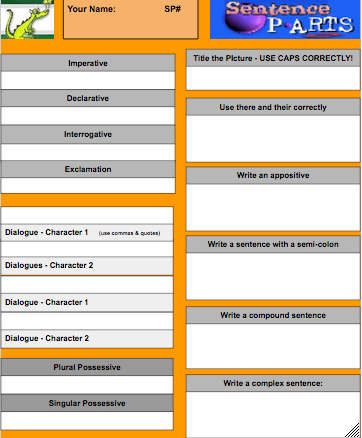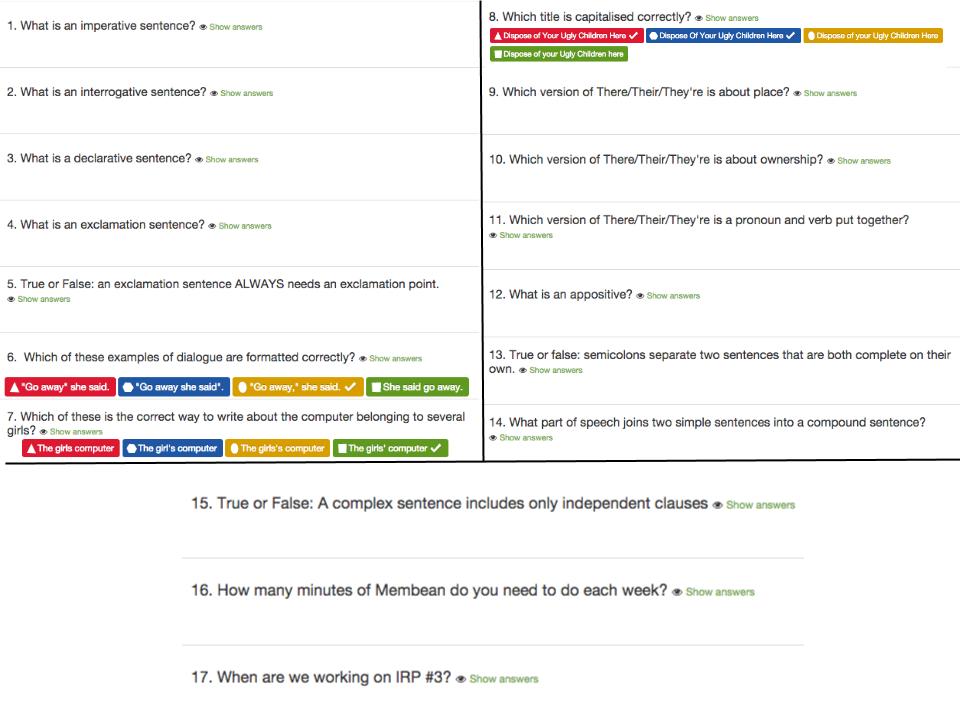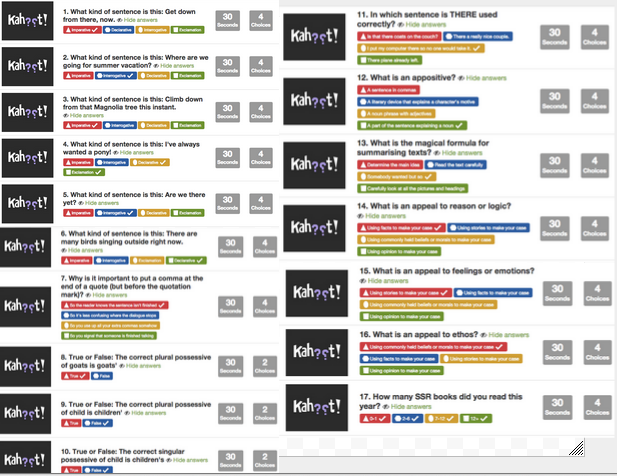Clearly, that is something really useful to my life. While there are lots of principles from the book I'll be implementing, I've been focusing on one strategy that they say is very clearly tied to moving information from short to long term memory: retrieval practice.
The concept, in its most basic form, is self-quizzing. The way most people study is they go over a list of topics, and run through them once or twice. Maybe you make flashcards. And as soon as you've gotten them right at least once, you figure out know them and move on.
But that's not knowledge. That's the illusion of mastery.
So how do you know if you really know something? By simulating testing conditions and forcing yourself to work harder to pull the information from memory. Practically, that means closing the book or the laptop and going back through the concept and asking yourself questions to test understanding instead of basic recall.
That is such a powerful concept that I decided I was going to implement it immediately with my 6th graders.
The problem that immediately surfaced is that I run a student-centred PBL constructivist classroom. There isn't direct instruction. There isn't lots of factual information.
Or so I thought.
Another thing I've written about is the 8 pARTS lessons that help my students learn the parts of speech in a fun, visual way. It's a lesson I stole from Jon Corippo.
Finally, my students all scored at mastery level so we could move on to the next step: Sentence Parts. For this, they would have to learn the types of sentences (imperative, interrogative, declarative, exclamation), dialogue punctuation, possessive, there/their/they're, capitalising titles, appositives, semi-colons, and the difference between a compound and complex sentence.
On the first day, I guided them through each box in the chart. Here it is:
That's one form of retrieval practice.
Today, I gave them the opportunity to experience another form. I asked them to fill in everything they could remember without talking to anyone, and without googling. I was as surprised as they were when 80% of my class filled nearly every box.
Then they had 3-4 minutes to talk to their group and get the rest of the answers, or google and find them. That left them with just needing to check that they had done the appositive and the compound/complex sentences correctly.
I asked them how many were surprised by how much they remember. Almost everyone raised their hand. They also scored better on the Kahoot we did at the end of class today. Here are the questions:
We are already at the point where they understand the content; to get to this point with 8 pARTs, it took two weeks. It's been two days.
This really does work.
So I challenge you: start quizzing your kids more! Help them learn that the only way to break the illusion of mastery is in quiz conditions. I use Kahoot because it's FUN and they are still testing the depths of their knowledge. They aren't cheating on it because they know that they get more points for fast responses, and they can find the answer faster than someone can shout it out.
And let them test their knowledge on something WAY earlier than you thought they would get it. You (and they) might be surprised.
Also, if you would like to be part of our 8 pARTS teacher group in the fall, please contact me via Twitter or in this site's contact form! We already have about a dozen people, and we'd love to get more!





 RSS Feed
RSS Feed
